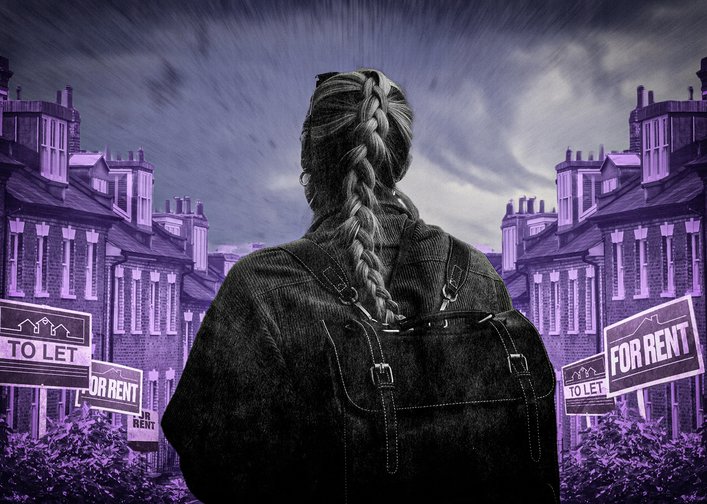The Renters Reform Bill, a promise by the Tories to provide private renters – now the second biggest tenure in the country – with a modicum of agency, has by all means failed. It is still not yet legislation and is currently being watered down by MPs. Its key tenet, banning the exact eviction I am now facing, looks unlikely to come into practice anytime soon.
This dearth of political will is unsurprising. Almost 20% of Conservative MPs, including five cabinet ministers, are landlords, and MPs from all parties pulled in at least £1.67m in rental income last year.
Despite the stark injustice, beyond resisting a legally presented eviction, there is little I can do. That’s sort of the point of a no-fault eviction: you don’t have to do anything wrong to have your home taken away. But if there is one useful thing I can impart in the face of such maddening unfairness, it’s to inform other renters of their rights.
I would encourage anyone being faced with an eviction to check it was served legally – often they are not, which means they are not valid. On top of that, it is worth knowing that a two-month notice period will not result in your being physically removed after two months, it is the period before a landlord can apply to the courts for a repossession order, which, with court delays, could take over six months. I would suggest not letting it get to the point of a bailiff turning up if you can avoid it, but don’t think you need to be out of your home in two months – you don’t. If you don’t want to or aren’t able to leave after a repossession order, activists like Acorn and London Renters Union often successfully resist evictions.
We face a general election this year and, like every year, the rental crisis seems to be low down on the political agenda. Those who rent are statistically younger, on lower incomes and from an ethnic minority background – it’s no wonder they barely get a look in in Westminster, where the average MP is aged between 50 and 59 and more likely to be white and a homeowner than the general population.
It simply cannot continue this way. I am a privileged renter, with a consistent income and savings, but the reality is that this broken system is causing immeasurable damage and exploitation to those in poverty, to those more easily exploited or to people fleeing domestic abuse. It compounds and exacerbates deprivation in a way that is so insidious and harmful that it is akin to denying someone of a human right. It is a problem that reaches all areas of society, and yet year after year politicians fail to make changes. Even if the human cost means nothing to you, it is also an incredibly expensive crisis.
There is a chance that by writing this I put myself at risk of even more insecurity in the future, that landlords may find this article and refuse to let their property to me. But I won't let a broken system stop me from speaking out about the injustices renters face day in and day out for knowing their rights. My housemates and I always paid rent on time, handing over thousands of pounds to our landlord every month, and asked for very little in return: simply to be left in our house undisturbed.
So what can be done? No-fault evictions need to be banned, and this must be done properly to ensure they cannot continue through the back door. This means rent increases need to be regulated too, particularly in areas where there is greater demand for housing. This is an imperfect system that can push rents up elsewhere, or prompt landlords to exploit loopholes and increase rents inbetween tenancies, but it’s still the best way to protect the majority of renters from sharp price increases.
Short-term lets like Airbnbs also need to be regulated so that those properties go back into being homes to buy or to rent. Social housing stock must stop being sold off through Right to Buy and must grow dramatically, but this is not a quick fix.
Ultimately, housing should not be an easy way to make money. It needs to be less profitable. We are simply too obsessed as a nation at making money off property and this has fuelled an unimaginable crisis. A house is a home, not an asset, and we deprive people every day of their ability to live fulfilling lives when we forget this. My tomatoes can wait, but my life can’t.


Comments
We encourage anyone to comment, please consult the oD commenting guidelines if you have any questions.